I’m a proud fronterizo — or border student.
I was born and raised in Tijuana but often spent time in San Diego, where many of my family members live.
I moved to California in my junior year of high school to live with my uncle and his family in, of all places in Southern California, Temecula.
I didn’t know much about the town because when I previously visited, we mainly stayed at my uncle’s home, where I spent time with my cousins and other family members.
As it turns out, Temecula has little in common with most other cities I had visited in SoCal. The city is known mostly for its vineyards, the Pechanga Resort Casino, and quiet stretches of suburbia.
When I officially enrolled in my new high school, I didn’t feel “different” per se. I realized it was my first time studying in another country but I’ve been going to San Diego all my life and my English was decent since all my schools in Mexico taught me the language. I didn’t feel intimidated.
Those feelings quickly changed as I started interacting with the students and staff.
My school was mostly white and the Latinx students seemed like they weren’t into their culture at all, as if they were embarrassed by it.
About 33% of the school’s students are “Hispanic” according to GreatSchools.org.
Most of the Latinx students I knew at my school barely spoke Spanish, and if they did, they tried to avoid it as much as possible.
I rarely got to speak my mother tongue with anyone. My uncle, who is Mexican, has a Filipino American wife and their children never learned Spanish.
All my teachers were white, which wasn’t strange for me since I had never experienced racism of any kind as a visitor.
But it’s different when you actually live in this country.
I never felt I belonged at my school or in Temecula, in general.
As I learned more about racism in America and the country’s history and culture, I realized on reflection that may be because of the micro-aggressions I experienced.
“This equation is two ‘x’ variables or should I say Dos Equis, like the beer, am I right, Juan?” said my high school math teacher.
Another teacher said, “Juan, you can take your test at home and translate with your Spanish dictionary.”
I don’t know how far they think Tijuana is from Temecula. But it’s just a 45-minute drive and their assumptions about me were offensive.
It dawned on me pretty recently: My teachers and classmates looked at me as an foreign exchange student, not a resident of Temecula.
When you are young and naive, as I was at age 17, you don’t notice these things.
My experience as an early career journalist and my Cal State LA education — especially classes about race and gender, Chicano studies and the history of Latinx communities — helped me deconstruct these experiences and learn and grow from them.
As a proud Mexican living in the U.S, I hold onto these experiences for a bit to take what I can out of them.
They inform me of the kinds of racism, often much more obvious, that may be happening to people I cover as well as misperceptions about my culture. And ultimately, they fuel my passion for telling stories of under-covered communities.
So, I take what I can out of these hurtful personal experiences and then, I simply let them go so I can be a healthy, happy and productive student and journalist — one who feels he does finally belong.
A version of this story appeared in LAist’s “Race in LA” series.
Community News reporters are enrolled in JOUR 3910 – University Times. They produce stories about under-covered neighborhoods and small cities on the Eastside and South Los Angeles. Please email feedback, corrections and story tips to [email protected].

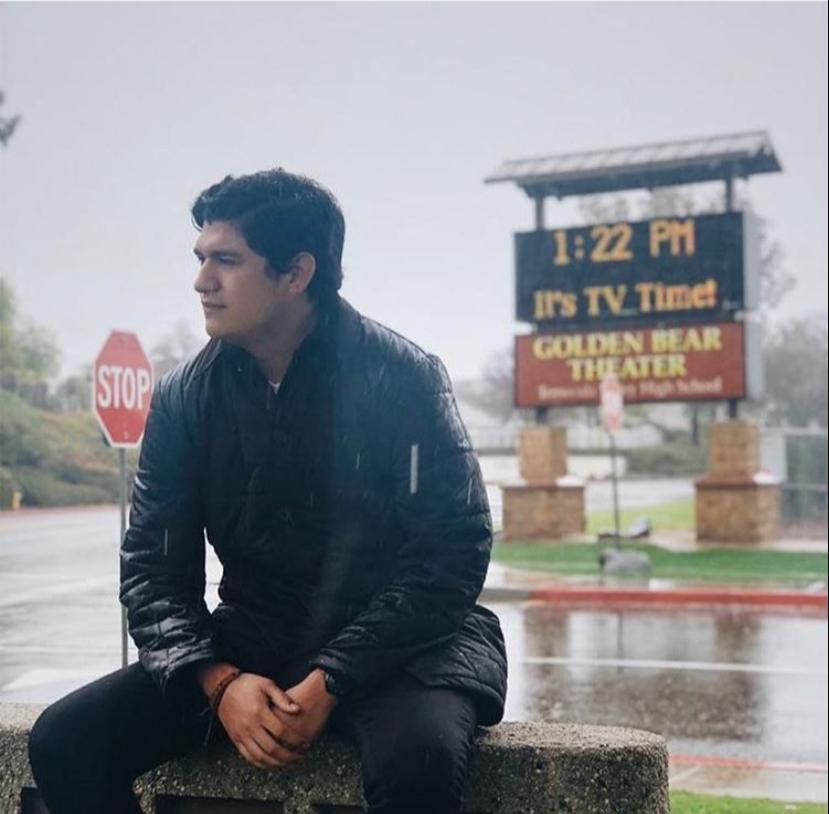




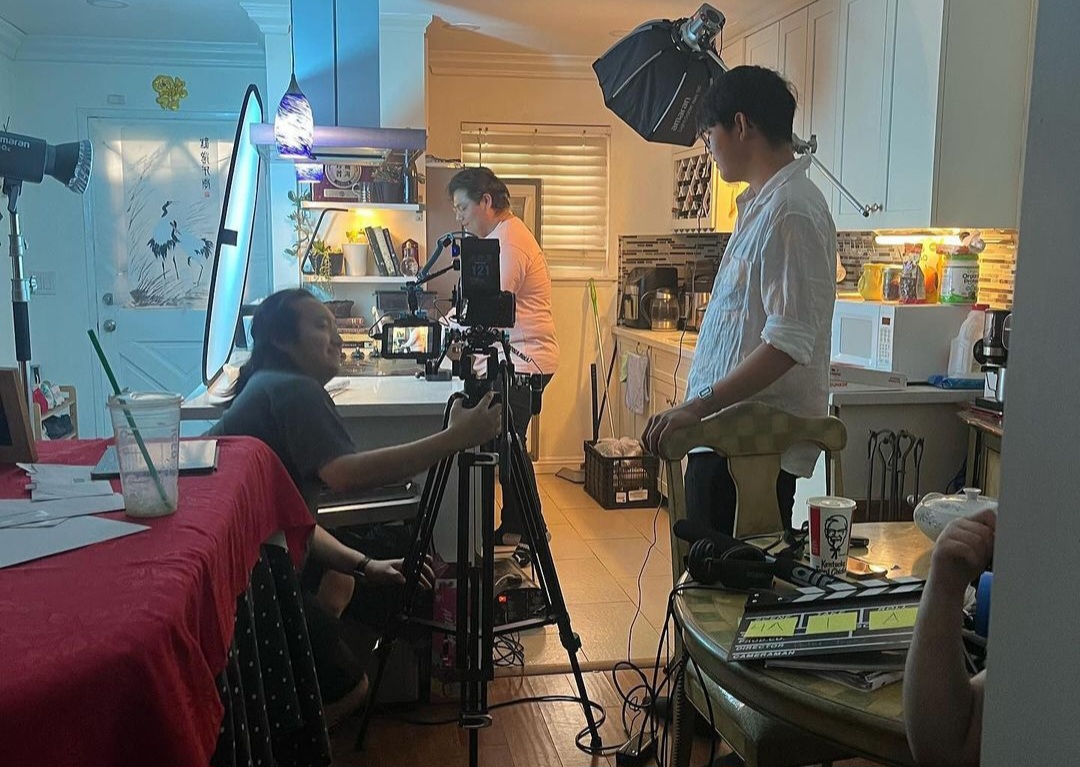
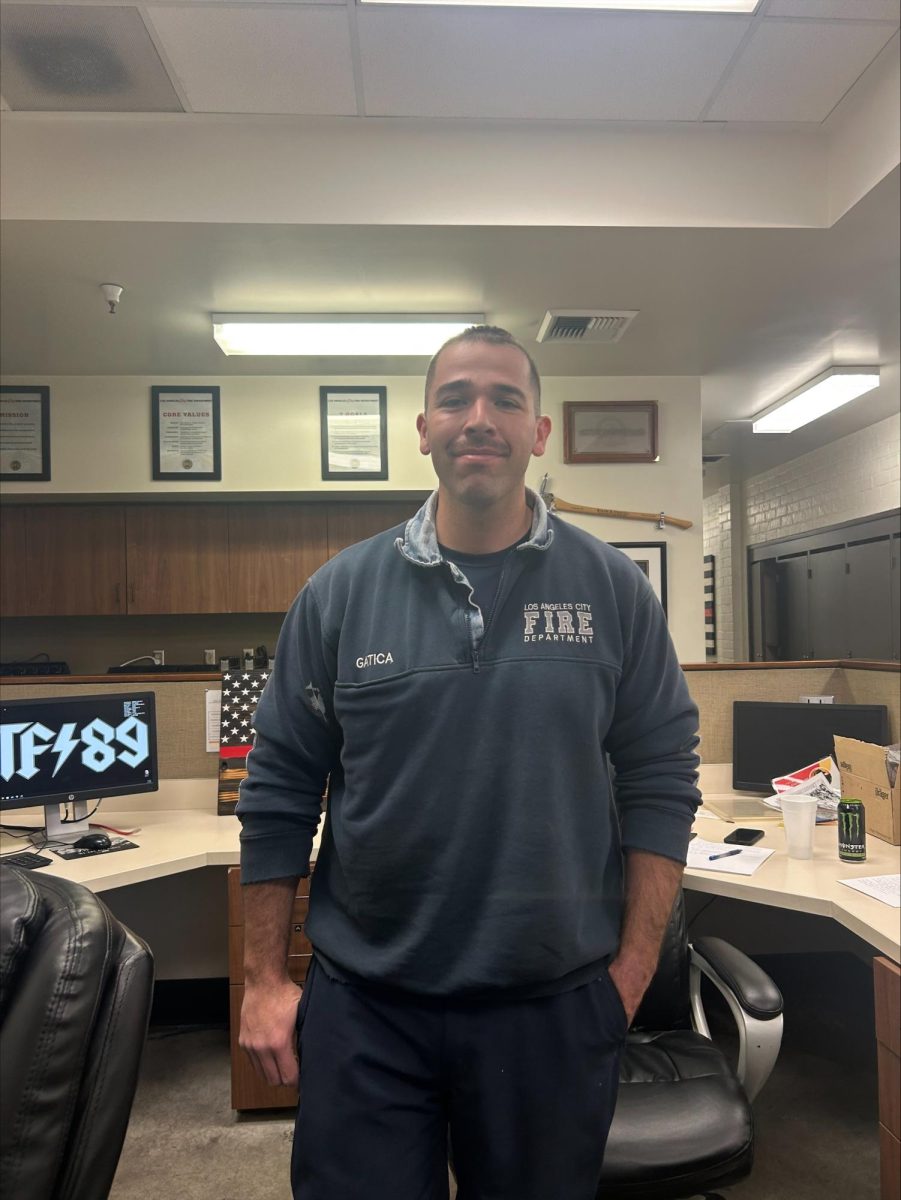
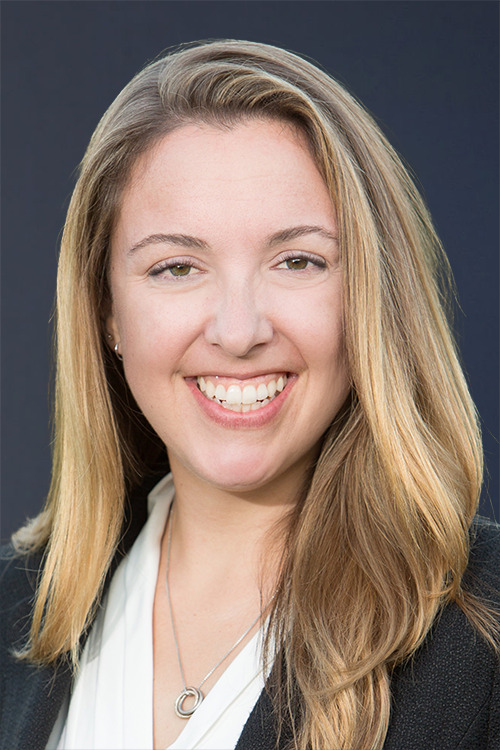
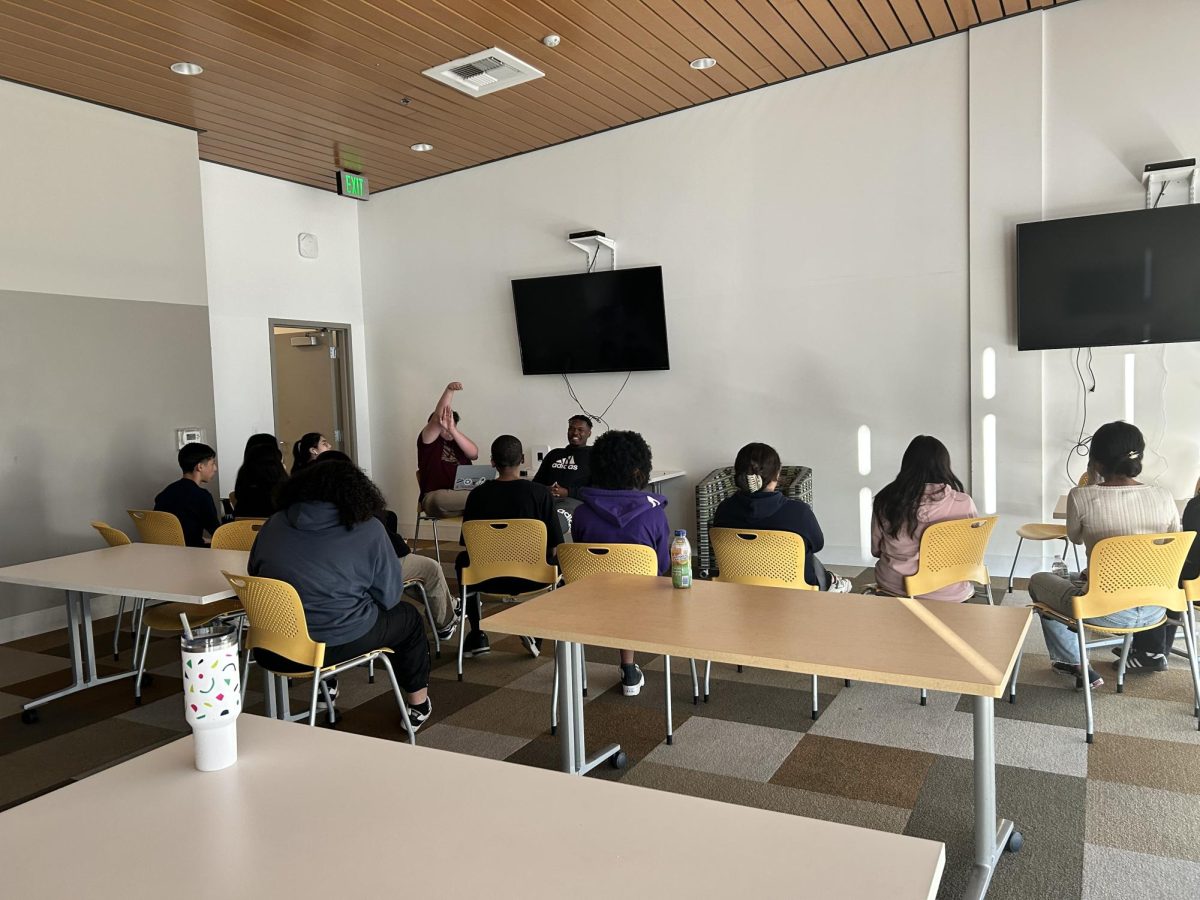
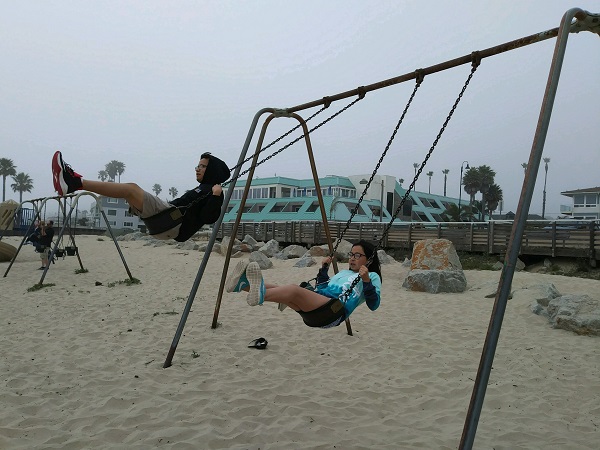




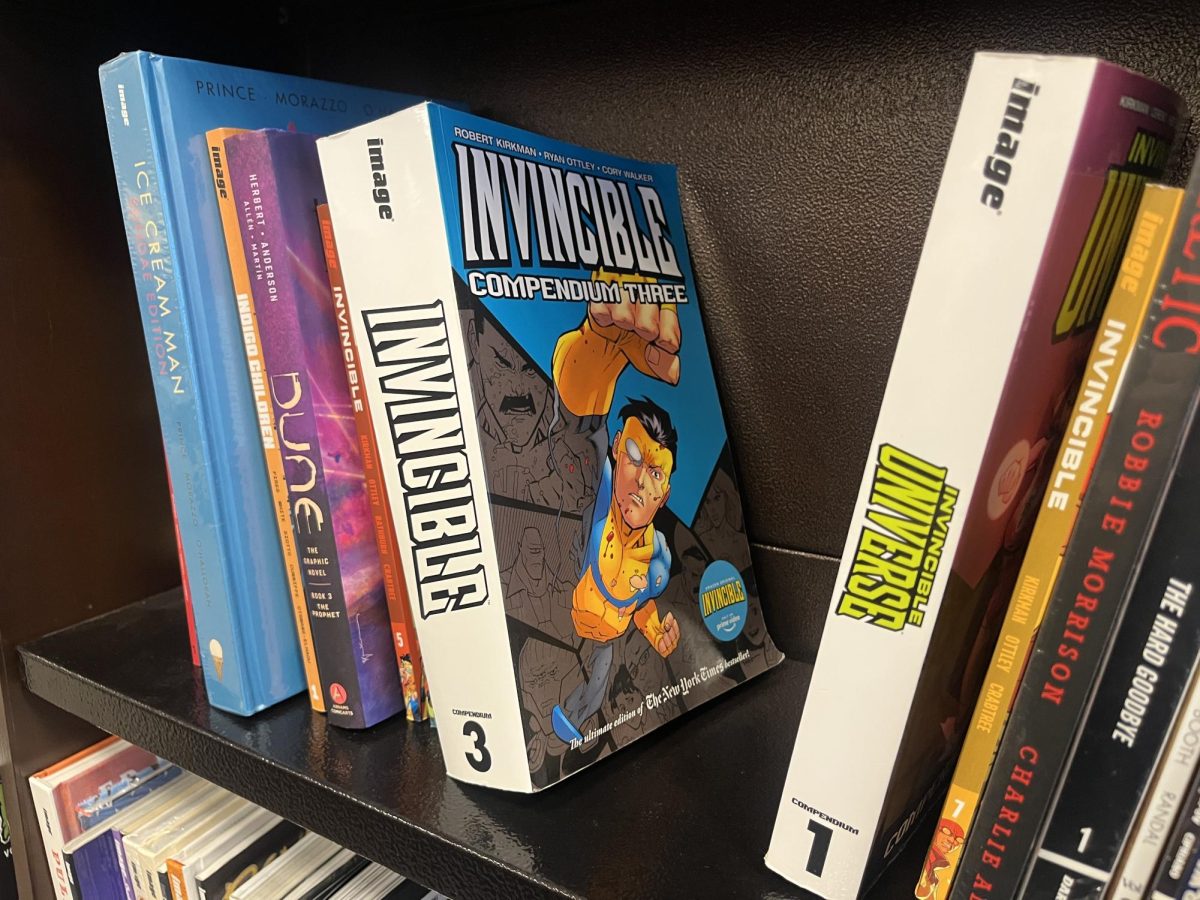

James Garcia • Dec 22, 2020 at 2:39 am
Great article and valuable experience. Don’t judge this one experience at this time in your life to form an overall opinion. Temecula often feels like a mid western town that got caught up in a cyclone and it just happened to land in Southern California. You probably felt like you missed the off ramp and ended up in Kansas 14 hours later..
Being born and raised in East Los Angeles your experience is familiar. Having lived in several communities throughout Southern California Temecula has been my home for many years. Temecula, is culturally typical, like many cities that serve as ones place to live and raise kids. It has a rich and diverse history as well. (Can’t tell by the window covering though). There are many cultures in Temecula represented. The fact is that Spanish surnames, the 33% you mentioned, are not a good measure of cultural integrity. (Mistake number one). In high schools culture is something read about in text books, like the Romans and Egyptians. So It’s easy to see that in high school dumb and offensive comments are the order of the day. In America, kids in particular, are first immersed in the culture of consumerism- toys, games, and gadgetry.
I have had many comments directed toward me, like you had, that could be construed as racist. Some by not only school teachers but college professors. At an early age I learned that racism and cultural ignorance seemed to cut across all levels of society and is systemic in America. I rarely took offense to hurtful or degrading comments choosing to consider the source rather than the intent. I also learned early on that America is different than most nations, we have many cultures, and it should be viewed in that context.
I’ve often found myself on the uninformed side of the cultural divide, especially when visiting other countries. My assumptions often backfired so I vowed to learn as much about other cultures as I knew about my own. I also rejected getting too wrapped up racially in who I’m supposed to be (as many do) in the eyes of others, especially those of my own culture. I know the blood that runs through my veins. Instead I felt that moving outside my cultural comfort zone was exciting, challenging, and opened my eyes to better understand myself in a larger context, and not so much subject to the leveling systems within my own culture which often felt like being in a straight jacket.
BRUCE EVEN • Dec 21, 2020 at 12:06 pm
Juan, thanks for the article. Yes, those subtle racist comments sometimes do not mean much at the time and then later you realize it. Too bad you didn’t meet me. I’m a white gringo who loves Mexicans. After college, I went to live in Mexico City and Tijuana. Mexicans made racist comments to me too, so it goes both ways. I grew up in San Diego and I love being a fronterizo. Soy bilingue y me encanta aprender idiomas. En vez de ser racista, la gente lo debe tomar como una oportunidad de aprender otro idioma y cultura. A mí me sirvió mucho. Saludos. Bruce Even [email protected]
Jacquelyn Miller • Dec 21, 2020 at 9:56 am
Thank you this article. This is very important. This happens everyday and the residents ignore it. The microagressions are considered as “light-hearted humor” or the classic “I think you misunderstood” or “I don’t think they meant it in a bad way”. Students and other faculty must call this out! Continue to embrace your culture and be a better human than the ones you described.
Honesimo avila • Dec 21, 2020 at 8:04 am
Esta sociedad americana siempre ah sido separatista y racista .me da gusto que lo aigas experimentado asta los llamados chicanos se tratan de separar de nosotros los mexicanos .todo esto te ayuda a apreciar tu cultura mexicana y te hace apreciar tu éxito en esta sociedad donde nos tratan como ciudadanos de segunda
Noel • Dec 21, 2020 at 5:25 am
Enjoyed your story very much. My grandfather was a transcriber who immigrated here from Mexico and my great grandparents on my dad’s side from Ireland. I grew up in West Covina, Ca. When we moved there from Echo Park , my first day on the block I was greeted by a group of redheaded boys surrounding me and chanting nigger, nigger ,nigger! This was 1965. The town then was 95% or more caucasian. I was six at that time. I had to ask my mom what Nigger meant. She asked; where did you hear that? who called you that? She took me back outside and confronted the boys nicely but firmly that that was wrong, and that I was Mexican /American besides. I guess I was the closest thing they had seen to a black at that point. I could tell you plenty more along the same line. I survived because there were people who I found were not like those boys and were genuine friends, mentors and teachers. I also learned that these white kids could also suffer. Kids wearing glasses were called four eyes. A slow student was called retard. The blonde girl I sat next to in class was very skinny due to a heart condition . Someone named her “mechanical toothpick” because of her appearance as she walked. Regrettably, I even called her that, thinking it would make me popular. I did apologize to her and was grateful for her acceptance. I can still remember the shame I felt when I latter faced her mother in the doorway of their home as I was collecting payment for the newspapers I delivered for the month, I could tell she knew what I had said . Neither of us said a word. We both just looked sad. I could hardly look up. The next month though, when I went to collect payment I was greeted by both the mother and my classmate at the door with the most pleasant smiles. They were so kind. I could tell they didn’t want me to feel over burdened about it. I hope their doing well. I think that understanding how things got to be the way they are is healthy, if we do it in a healthy way. Most of the white supremacy I confronted came out of an inferiority complex anyway. We cant expect perfection from everyone when we cant achieve it in ourselves. Love one another from a pure heart. Thank you for your article.
Urinda Magdaleno • Dec 20, 2020 at 11:18 pm
It’s so unfortunate that it’s that way.. I Dont understand people that are Mexican and not proud of it… How can that be? I was born here in California but would go and stay in michoacan Mexico at least 3 months of the year.. Every year…and every year when it was time to go back home..I would beg my mom for us to stay…
Because I thought life there in Mexico was amazing..
Juan Olachea • Dec 20, 2020 at 6:59 pm
Its a great article. I emigrated to USA and learned English and went to college. I did have same experiences. Good night.
Alex • Dec 20, 2020 at 5:26 pm
Wow I lived the exact same thing ! Grew up in Temecula and felt the same at school. The only difference for me was that I never learned English at all, and think that this experience helped me learn the language. 🙂
Debbie Sotelo • Dec 20, 2020 at 4:44 pm
BRAVO..Good for you mijo! It takes a real man not to be embarrassed …but to be proud of his SANGRE!! What an asset you are to our future…❤
Maria inge • Dec 20, 2020 at 11:31 am
First I want to congratulate you for your progress dear that is the attitude ….You knew you hold the key to success , I know what that’s mean .in my 33 years of to live in SD CA. I feel in the last 10 years of the descrimination display….After a series of protests look like the people start to be more conscious of , we are one people ,one planet and we are created equal…paisano I’m from Tijuana bc.very proud of you. Lee mi libro. Love manual in Amazon in spanish.Maria de la luz Manzo . Te amo .todos merecemos respeto, no importa que cultura …
angel abenilla • Dec 20, 2020 at 10:55 am
Good for you stay proud of what you are, God doesn’t make mistakes
Gadi • Dec 20, 2020 at 9:31 am
Don’t worry about others and what they think about you. It’s not worth it. I’ve noticed the difference with the people here in the Temecula Unified School District. My son goes to a school here and I’ve seen the way the moms are here. I’ve been told I need to go back to the border. I’m a U S Citizen. Born and Raised in Los Ángeles County. Now living in Temecula.
Eva • Dec 20, 2020 at 7:28 am
I enjoy the article. I’m latina and moved 12 years ago. I experienced ot all. Never cated for racism towards me. I speak two languages and often get paid more for that reason 🙂 I love my Culture, and. I never feel ashamed of who I am. I can miz the uniqueness of two worlds together, that makes me feel special And if you think about it.. It is something they’ll never understand.. How lucky I am!
Lynne Kapryn • Dec 20, 2020 at 12:31 am
I am writing to you as I, too, am an immigrant. Many years ago I came to this country with my parents at the age of 15 from England to the East Coast. I eventually made it to the West Coast as I wanted to leave the snow and cold weather behind. After a while, I moved to Temecula with my husband and have been here for several years. One thing I found out very fast was the importance of assimilating into the American culture. We can’t expect going to a new country that they take on our ways, language and customs. Even though I speak English, there are dozens of words that are different over here. A potato chip in England is a french fry over here. Potato chips over here are called crisps over there and so on. Also, even if words are the same, they are pronounced differently. I learned fast to start using American words and pronunciation in order to be understood. I left our customs at the door with my parents. We will always have our language and customs inside us, and share it with family and friends who know us and love us. However, we must do what we can to learn the new words and as much as possible assimilate into the new country we now call home if we are going to stay here and reap the benefits of living in this country.
Amy • Dec 19, 2020 at 8:46 pm
I could relate to your own experience in a country we weren’t born, I was around 9 when my parents brought us to USA, the opposite of you I didn’t speak any English you could imagine, is so wrong to judge a person for their skin color or the accent when you speak, the only thing we can do is to better ourselves take advantage of the great opportunities this country has to offer but is only for the persons who wants to break the cycle !!! Continue going to school and never be embarrassed of your Mexican roots . …..Im an old lady I could. be your grandmother and reading your story brought me back to my younger years , You will make it and don’t let ignorant people stop you …. wishing the best and I hope you continue telling your story and help others who are passing thru the same thing
James Nieves • Dec 18, 2020 at 9:57 pm
Thank you Juan, I know exactly your experience. I live within blocks of TVHS.Try living next to white neighbors that after almost 10 years living across the street in Paloma Del Sol have never even bothered to say hello or good morning . I’m Mexican and I was born an raised in so cal. I have surmised that most people are mid west and east coast transplants here that still carry a white privileged and elitist attitude about them. It used to bother me so much more than it does now. Education and a successful career as an engineer evens the platform in my opinion. My neighbors don’t pay my bills and most likely could not afford to on their grocery store salary. Te deseo mucho exito en tu carerra y que Dios Te mantenga en sus manos por Siempre mi hermano. Sincerely, a proud 55 year old successful American of Mexican decent! SI SE PUEDE!!!
Yoshi Peña • Dec 18, 2020 at 9:04 pm
Funny to mention about racism experience, which is ok, when in Mexico is more expressed with minimal filter about it. He see’s the small picture. Understandable, I guess. He sounds unappreciative about receiving a better education and more concern about culture shock
Deborah O'Shea • Dec 18, 2020 at 7:11 pm
I think this young man needs to contact the Young Democrats and consider a career in politics.
Daniel Serrato • Dec 18, 2020 at 3:08 pm
Juan, I’m glad you’re able to let go of these experiences and be happy. My situation was unlike yours because I was first generation Mexican American. My parents came here from the state of Nuevo Leon , Mexico. They wanted to give their children a better life than what they had. They gave up their own families and the land and life they loved. They achieved their dreams and I’m pretty sure your folks want what’s best for you. Don’t let the things ignorant minded individuals say get you down. Live your happy life. You and you alone are responsible for your journey through life. I’m glad you’ve chosen the high road. That makes me happy.
Carlos • Dec 18, 2020 at 2:49 pm
I can relate so much to his story. But we Mexican don’t hardly go to report things we hold it in we don’t riot or don’t cuase such a fuss we just work hard and do the hardest jobs no one has the guts to do it at very low pay we don’t complain or try to cause a scandal we are responsible respectful and help anyone .we aren’t as loud as others in races to cuase massive destruction to building s or try hard just to work hard and again hold everything inside we are very generous and have roots and are very caring for family and others we don’t speak loud yell cuase attention to maybe a to a unfair treatment but maybe we should start.we don’t ever bring up right away oh its cuase iam brown as are culture has green eyes blue eyes white white skin we come in many different colors but still Mexican we have a long history of abuse racism but we don’t cry about it and make people feel sorry for us or riot hurting inosent people we are brave and strong with many individuals intelligent and much more we are great in every aspect..
Peter Poole • Dec 18, 2020 at 1:24 pm
Your personal story, From Tijuana to Temecula showed up on my Google News feed. I was glad to read a story generated at Cal State LA, but sorry to read about Mr. Gomez’ experience during high school in Temecula. It’s a sad reflection on Temecula, but maybe also on the American suburban experience in general. I have lived in Temecula for more than forty years, but like almost everyone here, I moved from somewhere else. Part of my initial Temecula experience was different. Working in the Temecula Wine Country in the early years, the predominant spoken language was Spanish, which was vital to the success of an infant industry. In town, things were different. Perhaps others moving to a new community make similar choices to get along, but I quickly learned when to keep my mouth shut just to maintain peace and harmony. My children felt more exposed and not so lucky, finding that most of their classmates and teachers were not so inclusive or liberal minded toward the world compared to what they had experienced within our family.
We became involved with bringing foreign exchange students to Temecula, and also home and away youth soccer games with teams from Ensenada, BC. In the small community, those efforts mattered. In the small city Temecula has become, the dominant culture has only become more dominant.
Kaela Hasson • Dec 18, 2020 at 9:54 am
You lost me at LatinX. As my abuelita would say, no mames!
Cristobal De La Sierra • Dec 18, 2020 at 9:52 am
Arriba Juan as a first generation Italian Austrian American. I never felt American, I only once was with in crowd and I quickly saw it wasn’t for me. I beat my own drum and I too have been discriminated in both the U.S. and Mexico. You go around, under, left, right, over and through it. The good people always seem to be there and voice their support for me. Viva Mexico. Viva Estados Unidos. Please subscribe to my Utube channel Cristobal De La Sierra.
It started with my friends saying get up there and sing. My friend Jose from Grupo Love Secerto Que Bonita Esta and Mí Novía No Me Quiere. knew I could sing. I loved it crossing over la gente supporting me. Sabado Gigante, Tengo Talento Mucho Talento, Grupos. Keep it up and you are the gate keeper of your destiny. You will have your glory day in sun.
M A Kaspar • Dec 18, 2020 at 8:53 am
From the bottom of my heart, I apologize for the thoughtlessness of my community. There IS racism and discrimination in Temecula, in 1000s of small ways, and in some large ways too. The real irony is that Temecula has become what it is because of the wine industry. It was immigrants with experience with grapes and wine turned the dream of wine into reality here. It was they who understood the grapes, the soil, the water, the needs of the vines . And it was the field workers, mostly Spanish-speakers, who cultivated the grapes, and engaged in the day-to-day processes that made the wine possible. Still make the wine possible. This involves skilled labor and dedication. Even before that, the name TEMECULA is the Spanish interpretation of the original Native American name for this area and was translated as “Where the sun breaks through the mist” The Spanish have been here since 1797 and establishes Pala Mission shortly after that. In 1845, Rancho Temecula was a land grant to Felix Valdez. Native Americans and folks from Spain via Mexico were here in the Valley long before English speakers showed up. The casual arrogance and sense of entitlement exhibited by so many folks here is heartbreaking, and shows an utter lack of the historical roots of this beautiful valley.
Aaron • Dec 18, 2020 at 7:34 am
I share your life experience except the destination, mine was a costal town. When we are young, the sting of a judgemental comment tend to last a bit longer than later in life when immunity sets in and clearly see its source, understand its reason, and are able to dismis its intent
Great article.
Darrell • Dec 18, 2020 at 6:40 am
Juan, don’t be discouraged. i was born in america and its not all that. they call us the land of the free but we’re all prisoners under a taxing system that never lets you have anything or get ahead. We have a president that only cares about himself. sometimes i consider taking my family to mexico and never come back, no matter how little we have. Mexico truly is a better country, its people are free, and so are you.
Jess • Dec 18, 2020 at 6:13 am
Juan you are so right, very many young Latinos experiences this….keep setting a good example.
Gabriella • Dec 18, 2020 at 4:56 am
Journalist? Please contact me. I don’t know how to get it all out of my head, and I feel that if I do nothing I’m contributing to the problems…
Abner • Dec 17, 2020 at 11:07 pm
Enjoy the article as it is inspiring to read such observations from a young mind. Can’t wait to read more in the future form you.
Bianca V • Dec 17, 2020 at 10:35 pm
Really nice to hear you share a story I can relate to growing up in a Spanish speaking household.
Salvador Puentes • Dec 17, 2020 at 10:19 pm
First and foremost, congratulations. I admire your determination and the will to forge ahead. It is not easy to succeed when you have your loved ones, not undermining your uncle’s family support, 45 minutes away. But in this life we ourselves need to make things happen. The sacrifices you endure today will make a better person in the. Actually, it has already made a better person. I wish you nothing but the best. Salutations
Yolanda • Dec 17, 2020 at 9:46 pm
Hola Juan Te felicito por lo que escribes, me agrado mucho tú historia, aplaudo que sigas tú sueño de ser periodista, mi ingles ha sido una barrera y mi nivel no es tan bueno, necesito regreasr a la escuela a mis ya casi 45 años. A tomar ESL mi sueño de niña era ser periodista, escritora comunicar mis ideas, y ahora todo se ha resumido a años de trabajo sin pasión. Me agrada tú actitud fronteriza la entiendo a la perfección yo tambien creci en Tijuana. Sigue escuchando a tú espiritu emprendedor.
Sinceramente
YAM
Jeff Garcia • Dec 17, 2020 at 8:37 pm
Thank you, Juan, for sharing your story. People will try to invalidate your experiences for various reasons, but don’t listen to any nonsense. The problem of racism in America is complex and takes time to change. Reasonable people are listening.
Dana Kizlaitis • Dec 17, 2020 at 8:16 pm
Excellent article. I have never heard anybody say that felt like a foreign exchange students. I will always remember what you wrote and how you felt.
Robert • Dec 17, 2020 at 6:14 pm
I experienced this same racism in elementary school. Im born and raised in National City so there was no racism towards Mexicans as i grew up until i was in 5th grade and moved to el cajon. Those kids were brutal. Called me a greasy headed beaner. I punched him in the mouth. Then a week later i was told to go back to mexico cause this is a white mans world. I punched him in the eye. There wasnt anymore words like that spoken to my face. We moved back to NC after a year. Thank god.
Olivia najera • Dec 17, 2020 at 5:49 pm
I feel so sad that this young man has had to feel racism so extreme. May he find his way & know that God will get him thru this. I hope he knows that all people will not view him , as he has been viewed. May he continue to be proud of his heritage & all that he has been thru. He will be strengthened by this adversity. God bless you.
Cynthia Z. • Dec 17, 2020 at 4:13 pm
Wow! That is exactly how I felt when I move to Temecula. I am from Mexico living in California for 33 years. I honestly I don’t pay attention to racist people living in Temecula because talking about what I have experienced is a lot but the only thing I can say is when I see or hear people making comments about Mexicans I see them very tiny because that how they feel about themselves.. tiny.
Nancy Defalco • Dec 17, 2020 at 4:06 pm
My hat is off to you! I just moved from Temecula and I know very well racism is alive and well there!!! I can hear from your writing you have overcome a lot of racism and I see success in your future!!! Writing comes naturally to you and that will bring you success!!! Soar high!!!!
Steve Kent • Dec 17, 2020 at 3:42 pm
I enjoyed your piece. I comprehend completely about feeling belonging. I have lived off and on in Tijuana since 1999. I’m now 78. Most of the time reading my favorite Spanish language newspaper drinking coffee at an outdoor table in TJ, I get to chat with folks who are astonished that I’m fluent. I learned Spanish about 1975 to talk to the parents of the deaf students in Los Angeles. Variety is life.
Steve Kent • Dec 17, 2020 at 3:35 pm
I enjoyed your piece. I comprehend completely about feeling belonging. I have lived off and on in Tijuana since 1999. I’m now 78. Most if the time
Martha Anguiano • Dec 17, 2020 at 3:32 pm
I am very proud of you Juan, go for your goals and don’t let anyone or anything stop you
Emily Mendoza • Dec 17, 2020 at 3:12 pm
I live in Temecula for about a year now. Even though I moved here as a 29 year old Mexican -American woman I have experienced the same treatment as you did when you went to high school here in Temecula. Some things just don’t change. Thank you for writing and sharing your story. It made me realize I am not alone here.
Renee Krijgsman • Dec 17, 2020 at 3:08 pm
Beautiful truthfull essay. You can feel out of place even in your own country. I once lived in Virginia for 10 yrs and felt totally like a stranger, because I had a Cali accent and blonde hair. Hang in there, things will get better. High school can be terrible for everyone. Just hold your head up high and be yourself. The world is yours! RK
Emy Mendoza • Dec 17, 2020 at 3:07 pm
I live in Temecula for about a year now. Even though I moved here as a 29 year old Mexican -American woman I have experienced the same treatment as you did when you went to high chill here. Somethings just don’t change. Thank you for writing and sharing your story. It made me realize I am not alone
Dulce Lyons • Dec 17, 2020 at 3:03 pm
Never give up ,education is important ,don’t let nothing stop you bad experiences will make u strong ,good luck .
Victoria Lopez • Dec 17, 2020 at 3:00 pm
As a hispanic teacher in the same area as Temecula, I know what you mean about the uneducated-educated people that were your teachers. Letting it go is good…no better revenge than success. 🙂
Lynn J • Dec 17, 2020 at 2:32 pm
I want to say how impressed I am by your fortitude to move forward even though you experienced some very painful events living in Temecula. My husband and I have transplanted from Northern California (Humboldt County) 10 years ago. I, too, have noticed the silent but hurtful undertones of racism here. We didn’t raise our children here but I still notice the subtle Privilege that takes place here. For those of us of color, we notice it immediately; however, the people living here disregard.
If nothing else, this fortifies in your heart we all need to make our world a better place. Congratulations on your writing; congratulations for not giving up. You’ll find as you grow older, there is always hope and it’s up to us to choose our happiness and make our pathways a reality!!
Yolanda carrion • Dec 17, 2020 at 2:22 pm
Soy Nacida, USA, pacha, Chicana y si ,primera language es Spanish, y así,,,cuando era niña,Nina, deficil,deficit, los otros kids, quisieran Juan conmigp,, hasta este dia, no se si yo me apartaba, pr verguenza. De no habeas el English..pero se sentia feo, Nana lo boy a entender… mi piel es Morena, adorable yo soy quien soy, and I’m proud the chicana,.
Nancy Lawton • Dec 17, 2020 at 2:22 pm
Thank you for your honesty.AsA mexican American born in the U.S. Racism does still exist.By expressing your opinion and decision maybe it will change the mind of one person who has a bad opinion of foreigners.
Norbert Edmund Onaitis • Dec 17, 2020 at 1:41 pm
The first thing that came to mind is: What is his nationality? If he’s a citizen of Mexico, does he have a visa or a green card? If neither, why is he still here, rather than back “home”? Life is hard enough for those who are citizens, why should we take in those who use resources (public education, medical care, etc) yet pay no taxes. At the same time, there are those who play b y the rules and are waiting years for an opportunity to emigrate here legally.
Migdalia Arellano • Dec 17, 2020 at 1:02 pm
I must say – this article really hit home. Being from Mexicali Baja California and living in Temecula for the last 18 years i know exactly what you mean. I have raised both my kids now 18 and 19 years old here in the Temecula Valley and have always instilled a sense of pride in their Mexican heritage and their language. It has not been an easy task I must say especially as a single mother. I had a rule at home and the rule was to speak, eat and sleep SPANISH when at home – no English speaking allowed in this household. I figured they would learn English at school just like I did when my father immigrated us from Mexicali to Calexico, California when I was 6 years old. Fast forward to today, I must say that all major sacrifices do pay off, and after repetitive scolding and constant reminders of saying “ESPAÑOL PORFAVOR!” for many years when I heard them speaking English, both my kids (now adults) speak, read and write in Spanish thanks to the discipline I instilled at home. Now my kids thank me – not only for teaching them a second language but for the amount of doors that are open to them in job opportunities being bilingual.
Great Article!
Ceni • Dec 17, 2020 at 12:57 pm
I totally can relate to your story. I grew up in Rosarito, high school and college in TJ. Living in San Diego for the last 11 years. I had a few offensive episodes myself at work and outside work. I always do the best i can so one day hopefully the other people change their mind about us. In the end we are all the same no matter where you come from.
Migdalia Arellano • Dec 17, 2020 at 12:55 pm
I must say – this article really hit home. Being from Mexicali Baja California and living in Temecula for the last 18 years i know exactly what you mean. I have raised both my kids now 18 and 19 years old here in the Temecula Valley and have always instilled a sense of pride in their Mexican heritage and their language. It has not been an easy task I must say especially as a single mother. I had a rule ay home and the rule was to speak, eat and sleep SPANISH when at home – no English speaking allowed in this household. I figured they would learn English at school just like I did when my father immigrated us from Mexicali to Calexico, California when I was 6 years old. Fast forward to today, I must say that all major sacrifices do pay off, and after repetitive scolding and constant reminders of saying “español porfavor!” for many years when I heard them speaking English, both my kids (now adults) speak, read and write in Spanish thanks to the discipline I instilled at home. Now my kids thank me – not only for teaching them a second language but for the amount of doors that open to them in job opportunities being bilingual.
Great Article!
Marti Ramirez • Dec 17, 2020 at 12:40 pm
God bless you mijo
Felix Esparza • Dec 17, 2020 at 12:28 pm
Very similar story.
I am from Tijuana, colonia libertad. I’m 58 years old and Thanks be to God I had a good career. I was a police officer for 30 years, however, as a young man in HS I had almost identical incidents back then.
Keep up the good work and journalism.
Mike • Dec 17, 2020 at 11:53 am
If those two incidents you provided were offensive, then you are in for a rough experience in life. This kinder genter expression hss been and is being pushed to far. I hope this does not offend you.
Scott Roney • Dec 17, 2020 at 11:51 am
I’m glad Juan is speaking out. My step daughter is African and Russian. She had an overall good experience in a Temecula HS but she was a straight A student and has a strong personality. I think many students tend to blend into the woodwork so as not to create tension. I hope Juan continues on in his education and finds a rewarding career path.
Maria Chavez • Dec 17, 2020 at 11:47 am
Proud to hear stories of young people like you making sacrifices to get educated. In 20 plus years living in souther California, I only experienced racism twice,one is not even worth to mention and the other one five years ago when I moved to San Diego County, a guy selling stuff at Old Tow San Diego told me and my family that his shop was closed, when it was obvious that it was open, I found offensive that he was selling all kinds of mexican artisan toys and musical instruments and he didn’t want the business of mexican looking people like me. Obviously that guy had issues. However I will never let one negative person change the precious memories I have being part this generous country and the beautiful people of all races that enriches this land. God Bless America.
Victor • Dec 17, 2020 at 10:32 am
I’m surprised that you had any problems, your writing is superb!
Elizabeth • Dec 17, 2020 at 10:17 am
Juan I concur. My parent’s came to the states when I was a baby. I was born in Havana Cuba. I do speak, read and write Spanish because my parents always felt it was important to maintain our cultural heritage.
Growing up I too was naive when teachers made comments which were stereotypical just because my last name was not Smith or Howard. Teachers assumed that my parent’s were not involved in my school life, they assumed many things about us. Actually we came here NOT to pursue the so called “American dream”….we came due to political upheaval on our island nation. I am just as American as apple pie, but just as Cuban as the bongos. I am both. I do not need to be pigeon holed or a certain color to be an American.
Juan congratulations on your education. Keep writing and keep your traditions and culture a part of your family just as my parent’s did. Never let go of who you are !
Getorres • Dec 17, 2020 at 9:58 am
I feel you I definitely relate to your story i was brought here at 16 years old and it was hard all my teachers were white and I spoke no English nothing
Rachel Cantu • Dec 17, 2020 at 9:28 am
Juan,
I recently moved from California to another State and racism is very much alive. It is taking me awhile to not be sensitive to IGNORANT people. More good loving people exist.
John • Dec 17, 2020 at 8:58 am
My dude as a student in temecula, I have never seen a microagression, and if you wonder why people looked at you as a foreign exchange student and not a resident it’s probably because you were not a resident of the city.. I’ve never seen someone discriminate, and your claims about speaking little spanish is so irrelevant it’s not even funny.. all the high school spanish classes teach their students by speaking spanish only… Seems like you had a bad experience or are salty about something my dude cause I’d say more than 50% of your claims lack any substantial evidence whatsoever, the rest have quotes no one can verify.. if you are going to write an article about real racial issues let’s talk about the tragedies that occurred this summer…
Loretta • Dec 17, 2020 at 8:53 am
Thank you for sharing. As a 2nd generation Mexican American growing up in the 70’s-80’s that was a time when speaking Spanish was not OK…so my parents never spoke to us in their native tongue. I have always felt regret for not fully learning the language of my culture and in fact was embarrassed by it growing up. Of course I feel differently now but it took years to love me and my culture. It’s sad to hear that times haven’t changed much. What I see different now is our young people, like you, resilient and proud of our ancestry. Be the light and keep shining!
Freddy Paquian • Dec 17, 2020 at 8:08 am
I read this article and I laugh. I grew up in East LA in the 70s and the only racism I experienced was from my people who were born in Mexico. They are some of the most racist people I’ve ever known.
Martha • Dec 17, 2020 at 7:59 am
Juan,
I too was born in Tijuana; moved to this country when I was 13. You ended up in Temecula at the onset; I ended up raising my family in Temecula. Three of my children attended TVHS.
I’ve had many experiences similar to yours growing up. I had wonderful teachers while in school but somehow it always made me feel like an unprivileged child, they saw my culture as a disadvantage. Early on, I decided that the best thing I could do was to give the best of myself and in doing so I also give the best of my culture.
It makes me proud to read you have chosen to take a more positive approach to this. Wish you the best in your life and future.
Samantha • Dec 17, 2020 at 7:16 am
Everything he speaks about is the truth. You have Mexican Americans who can’t speak Spanish. I see a lot of Mexicans who’d rather have people talk to them in English rather than Spanish because it’s embarrassing. Why be embarrassed of your culture/race? I’m Mexican myself and I am proud to be Mexican.
Martin loya • Dec 16, 2020 at 8:20 pm
Very well written article I was born and raised in California alarm for car wiring my blood comes from I live in Temecula and I lived in Temecula loan for 12 years wine if you ever want to talk horror ask me questions Lil Kim contact me at 951-252-5199 really enjoyed your article if you haven’t the time I would like to meet you can person talk to you I’m just an average person Mexican nothing great about me just interested in I hear what you have to say thanks
Robert Lewis • Dec 16, 2020 at 8:02 pm
The U. S. is a Great Country that provides more to Mexican citizens, than their own Country of Mexico. Please don’t complain about this Country, you don’t have the right. Be grateful please.
Deborah • Dec 16, 2020 at 7:47 pm
I live in Murrieta and Murrieta and Temecula are heavy Trump supporters and they are racist in this area I hate it!
Ron Rodarte • Dec 16, 2020 at 6:34 pm
Your story is probably all to real to many who have experienced racism under the shield of ignorance and from the perspective of humorous assumptions. I do believe progress is slow but steady. Education to our community is a key factor. I learned much about our struggles @ CSULA Ithrough MECHA.. MEJOR MORIR EN PIE QUE VEVIR DE RODIAS. DARE TO STRUGGLE DARE TO WIN.!!
Danielle Donnelly • Dec 16, 2020 at 6:28 pm
Juan I assure you that the way you were treated was unfortunately the way that a lot of us us citizens feel . We as Legal citizens feel that people from Mexico and other country’s are taking advantage of our lax government system . Most of us can care less about what race you are . When people come into another country you need to become a citizens to receive all of the benefits that the county offers unfortunately the United States of America has been letting illegal people stay into our country and take advantage of the benefits that illegals are not entitled to . How does this happen poorly run government . The United States of America is broke due to giving benefits to illegals who do not put any funds taxs etc back into the system . How does this happen . Example .. the hospital in the town of fallbrook Ca was out of money after years of serving our community why because a high percentage of illegals would come in receive care leave and never pay there medical bills look it up maybe pay a visit to fallbrook Ca it was once a very quiet peaceful town . You will find a big percentage of illegals that have made fallbrook Ca there home . Our town has 38 Mexican restaurants 38 ….. I’m just trying to open your eyes to maybe a different perspective in my eyes . Thanks for listening